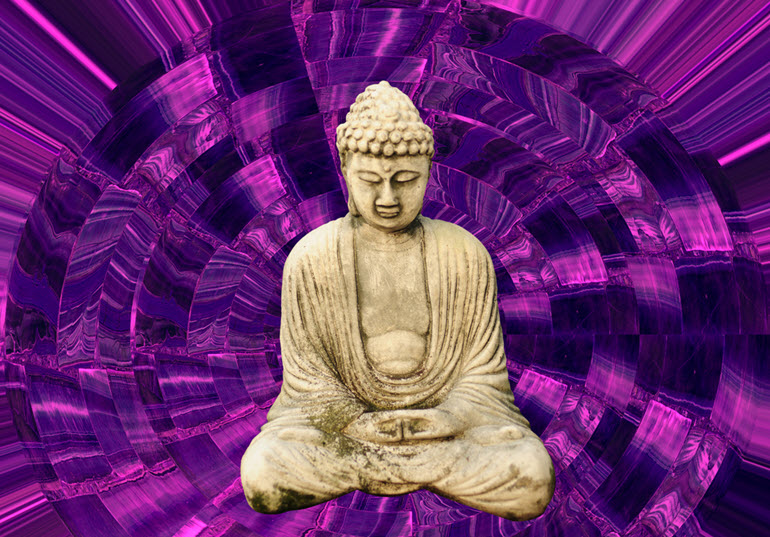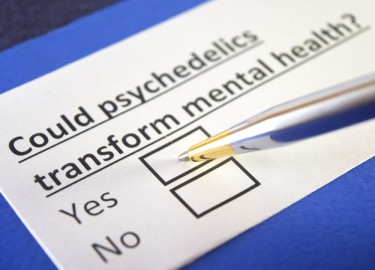
No Trippin’ Psychedelics for Mental Health?
Scientists are developing a non-hallucinogenic psychedelic drug to treat mental health problems
Going on a psychedelic trip is all the rage these days. Whether you like magic mushrooms, LSD, ketamine, or other hallucinogenic drugs, they’re all touted for their ability to help treat mental health issues, especially when pharmaceutical drugs haven’t.
The “journey” brings enormous benefits. Countless people have found relief after years of struggling with depression, post-traumatic stress disorder, obsessive-compulsive disorder, and many other conditions that affect the quality of life. While some people only need to take medication once or a few times a year to feel the effects of psychedelics, others want to be able to enjoy the same effects without having to go on a hallucinogenic trip.
Thanks to a brand new discovery, this could be possible in the near future.
Chemistry researchers from UNC-Chapel Hill, Yale, UC San Francisco, Stanford and Duke just completed a seven-year experiment in which they were able to engineer a non-psychedelic substance that attacks 5-HT2A, the same brain structures that psilocybin does and ketamine. They tested the substance on mice and their results showed that they had no psychedelic effects.
This is groundbreaking news for researchers to develop a drug that targets the same neurons to produce antidepressant activity as psychedelics and even SSRIs do. More importantly, they found that the compound’s results were immediate and long-lasting, even when the mice were given just one dose.
“We were very surprised that the compound had antidepressant effects similar to those of ketamine and psilocybin, both fast-acting antidepressant psychedelics,” explains Bryan Roth, MD, PhD, co-author of the study. “We basically did a chemistry experiment to see if we could make a compound to activate 5-HT2A. When we achieved that, we decided to do experiments on mice,” he adds.
“We don’t know if we’ll see the same effects in humans,” says Roth. “But we hope to find out. It would be a game changer to develop a long-acting, single-dose therapy to help people with treatment-resistant depression and other conditions.”
“For us, the project started as an opportunity to expand the new virtual libraries with 75 million tricked-out molecules from the Ellman lab,” explained Dr. Brian Shoichet, co-author of the study. “It wasn’t until we began to see the unusual signaling of the new compounds and their amazing permeability to the brain that we as a team began to believe that these compounds might have interesting effects in vivo,” he added.
“What we saw was completely unexpected,” Roth said. “Not only did the compound bind the 5-HT2A serotonin receptor the way we envisioned it, but it had the same antidepressant drug effect as ketamine, but not the same hallucinogenic drug effect,” he said.
Roth, Shoichet and their teams recognize they still have work to do. However, it certainly shows promise and can help millions of people worldwide.
Scientists see the urgency to look for ways to treat depression
Roth and his team are not alone: There is a clear urgency in the medical and scientific community to find ways we can treat depression.
SSRIs (selective serotonin reuptake inhibitors) are the most commonly prescribed antidepressants worldwide. This class of drugs affects the nerve cells in the brain that are responsible for regulating emotions. Because serotonin is one of the primary neurotransmitters in the brain affected by depression, SSRIs help make more of it available between neurons to improve regulation and communication.
While SSRIs work very well for a portion of the population, there are countless people who struggle with their side effects. These include but are not limited to: headaches, blurred vision, restlessness, dry mouth, drowsiness, sexual problems and more. Additionally, it takes several weeks of taking SSRIs before any improvement in depressive symptoms is noticeable.
This is why the concept of psychedelics was so promising: it worked instantly and its effects lasted long. In many cases up to 6 to 12 months after just one dose.
But many find the hallucinogenic properties of psychedelics annoying.
As early as 2018, there was interest in finding non-hallucinogenic psychedelics. David Olson, a chemical neuroscientist, worked to find other alternatives to LSD, MDMA and DMT – some of the most popular psychedelic drugs used both recreationally and for their therapeutic benefits. In his search, he used online forums like Reddit to find out which recreational drugs individuals have already developed but have failed due to their lack of hallucinogenic properties. He referred to them as “psychedelic clothes”.
However, Olson found that many of them could actually help promote neural growth, one of the main mechanisms of psychedelics used to treat depression. He then worked in his own lab to synthesize molecules, resulting in modified versions of ibogaine and DMT.
Olson eventually co-founded Delix Therapeutics, a pre-clinical startup focused on developing non-hallucinogenic drugs to help people with psychiatric conditions. In 2021, they announced that they would launch two compounds for phase 1 trials by 2023, which should help treat brain diseases.
Physicians recognize the importance of using these compounds to treat depression and other real-world brain disorders. according to dr David A. Merrill, Ph.D.: “Northern, non-psychedelic antidepressants do not require the intense staffing, space, and safety requirements that are required for classic psychedelics. It is easy to imagine that non-hallucinogenic psychedelic substances that retain their antidepressant and anxiolytic properties but lack psychedelic properties could be given to patients for take-out and self-administration, or even shipped to the patients’ homes without the need to order to come in for the longer sessions at the practice used with current psychedelic therapies,” he tells MedicalNewsToday.
These developments are exciting to say the least – and we look forward to more news on this aspect.
PSYCHEDELICS FOR MENTAL HEALTH, READ MORE…

PSYCHEDELICS FOR MENTAL HEALTH, WHAT WORKS TODAY?

Post a comment: